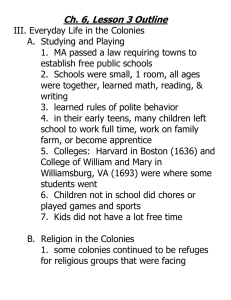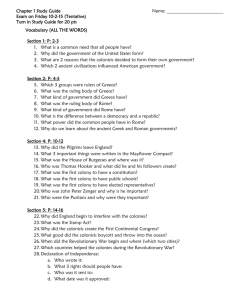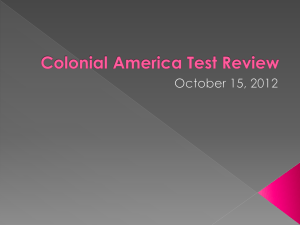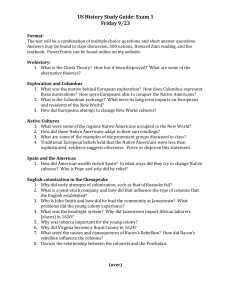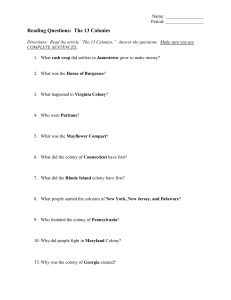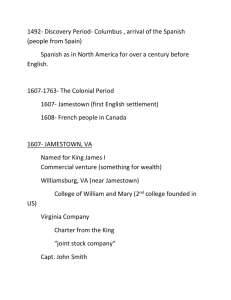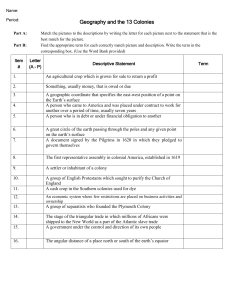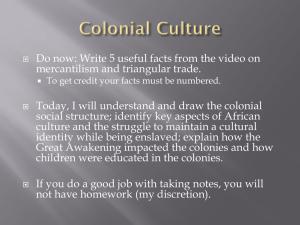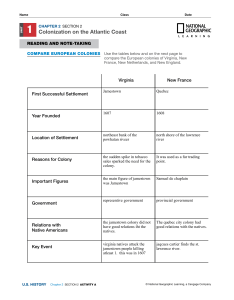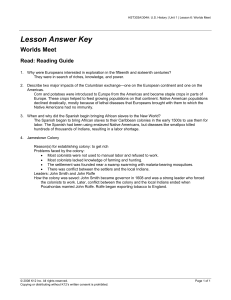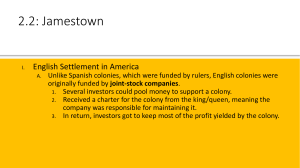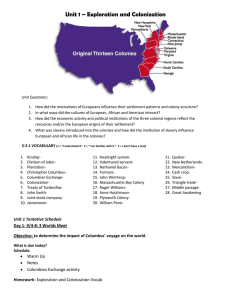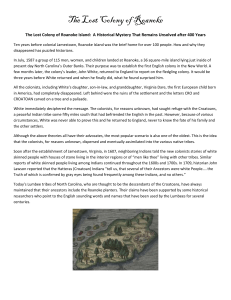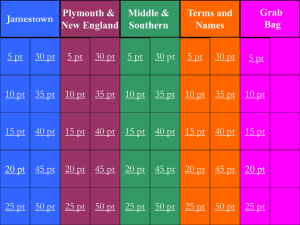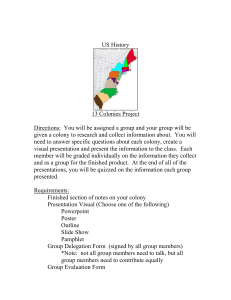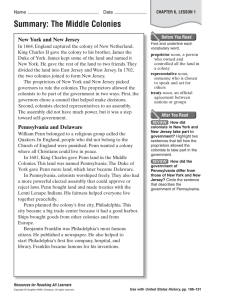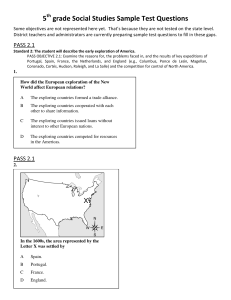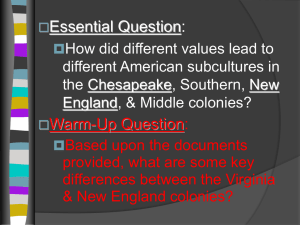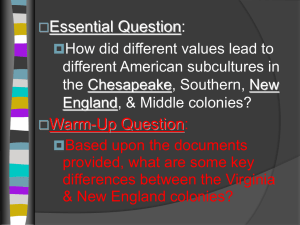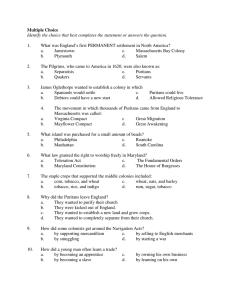1. ___________________ became the leader of Jamestown in 1608 and... Chapter 2: European Colonies in America Section 2: Pages 47-50
advertisement
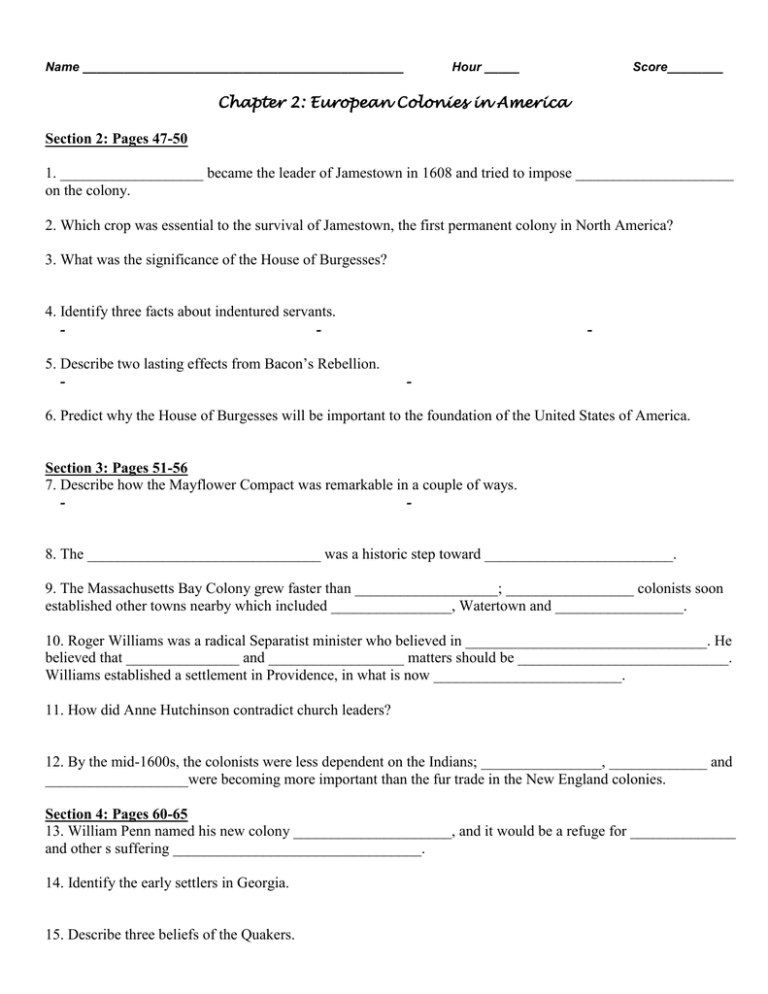
Name ______________________________________________ Hour _____ Score________ Chapter 2: European Colonies in America Section 2: Pages 47-50 1. ___________________ became the leader of Jamestown in 1608 and tried to impose _____________________ on the colony. 2. Which crop was essential to the survival of Jamestown, the first permanent colony in North America? 3. What was the significance of the House of Burgesses? 4. Identify three facts about indentured servants. 5. Describe two lasting effects from Bacon’s Rebellion. - - - 6. Predict why the House of Burgesses will be important to the foundation of the United States of America. Section 3: Pages 51-56 7. Describe how the Mayflower Compact was remarkable in a couple of ways. - 8. The _______________________________ was a historic step toward _________________________. 9. The Massachusetts Bay Colony grew faster than ___________________; _________________ colonists soon established other towns nearby which included ________________, Watertown and _________________. 10. Roger Williams was a radical Separatist minister who believed in ________________________________. He believed that _______________ and __________________ matters should be ____________________________. Williams established a settlement in Providence, in what is now _________________________. 11. How did Anne Hutchinson contradict church leaders? 12. By the mid-1600s, the colonists were less dependent on the Indians; ________________, _____________ and ___________________were becoming more important than the fur trade in the New England colonies. Section 4: Pages 60-65 13. William Penn named his new colony _____________________, and it would be a refuge for ______________ and other s suffering _________________________________. 14. Identify the early settlers in Georgia. 15. Describe three beliefs of the Quakers. Chapter 3: Colonial Life Section 1: Pages 73-76 16. Describe the effects of the Navigation Acts. For England For the Colonists 17. Describe three important powers the English Bill of Rights gave to Parliament. - - 18. Describe salutary neglect. Section 2: Pages 78-83 19. Identify three small industries in the colonies and the port cities that were thriving centers of trade? 20. Explain Triangular Trade and the Middle Passage. Section 3: Pages 85-89 21. Describe the social contract citizens have with their government. 22. Differentiate the contributions of the following Enlightenment thinkers from the Quick Facts chart. (pg. 85) John Locke Montesquieu Rousseau 23. Describe the Great Awakening. Section 4: Pages 91-95 24. The _____________________ League had a _________________________ and a council of leaders. 25. Although Benjamin Franklin’s Albany Plan of Union was never approved, it was the _____________________ ________________________________. 26. Look carefully at the map on page 94. What territory did the British gain after the war? 27. Also from the map on page 94, how were Spanish and French territories affected? 28. What was the Proclamation of 1763? 29. What kind of effect did the war have on Native Americans?

